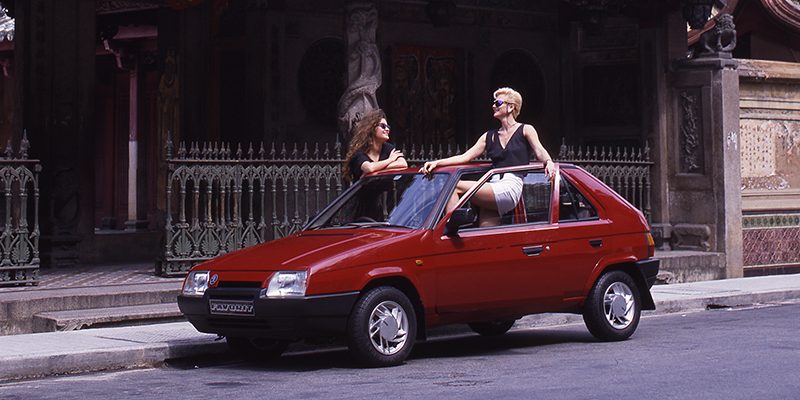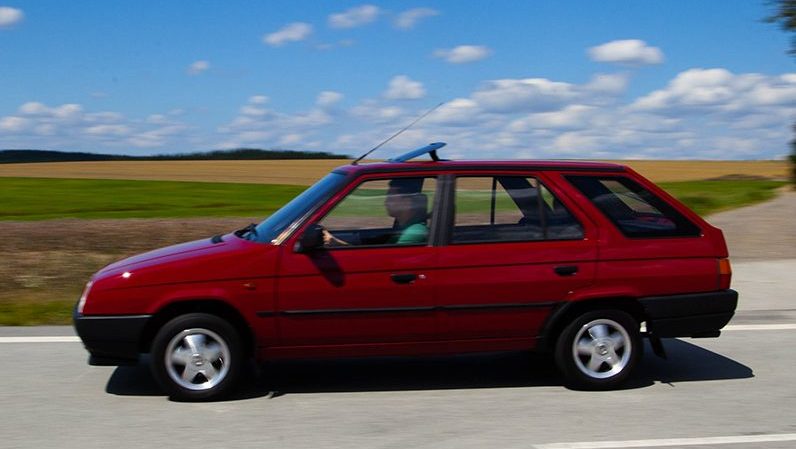The family hatchbacks and estates ŠKODA FAVORIT and FORMAN debuted in 1987 at an engineering trade fair in Brno. The production continued from 1988 to 1995 (FAVORIT until 1994) producing as many as 783,167 and 219,254 units respectively. Utility versions called FAVORIT PRAKTIK, FORMAN PRAKTIK, PICK-UP (60,744 manufactured cars) and FORMAN PLUS were also made. The front-wheel-driven car with a 5-speed gearbox was powered by a 1.3-litre four-cylinder engine. The maximum power was 40, 43, 46 and 50 kilowatts with the 0-100 km/h acceleration between 14 and 17 seconds.
The model underwent two facelifts with the first as early as 1991 when ŠKODA was acquired by VOLKSWAGEN. The first facelift consisted mostly of details, though: the asymmetrically positioned logo on the ‘grille’ moved to the centre and the air intake slot underneath disappeared (the air was drawn in through holes in the front bumper only). The materials were gradually improved but the looks remained untouched.
A more noticeable facelift came in 1993. The radiator cover featured a new air intake slot (called a ‘moustache’) and the radiator itself was narrower.























































